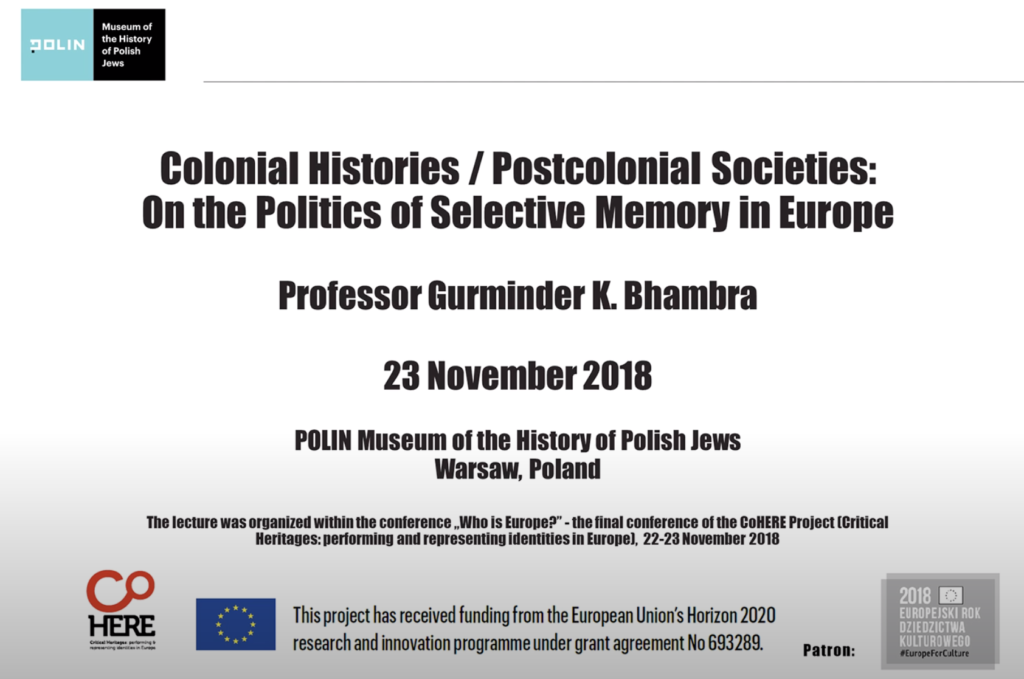The financial collapse in 2008 and the related politics of austerity over the last decade have thrown Europe into crisis. This has been compounded by the crisis for refugees and more recently the British vote to leave the European Union. The ensuing turn to the far-right across Europe is not a new phenomenon, but can be seen to be an intensified one. The intensification is due, in part at least, to the hysteria generated in response to the crisis for refugees. Yet what exactly constitutes this crisis? Since 2015, the increase in the estimated population of the European Union, in terms of the numbers of refugees and asylum seekers granted protection within its borders, is 0.31%. Could there be an empirical crisis of the magnitude claimed on the basis of such a marginal increase? How do we explain the nature of the response? In this talk, I suggest that it derives from a long history in which colonial Europe and its sociologies failed to recognise the populations of its wider political communities as equals. Following decolonization and the formal end of empires, European states have purified their histories as national histories and imagined their political communities as composed of ‘kith and kin’. In this context, there is a refusal to share obligations with those who were previously dominated within their broader imperial political communities. This is the politics of selective memory that is currently playing out in Europe. Now, perhaps more than ever, the question of ‘who is Europe?’ and the related question of what Europe might stand for requires address.
